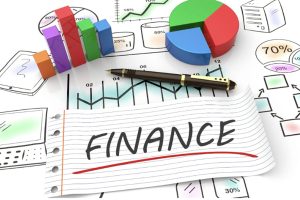
Strategic Growth: Why Strong Relationships Are a Real Estate Investor’s Competitive Advantage
In real estate, numbers matter—cap rates, occupancy rates, internal rates of return. But behind every successful investment portfolio lies something less tangible yet equally powerful: relationships. While data and financial models guide decisions, strong relationships often determine access to deals, trust with partners, and the ability to adapt through cycles. Strategic growth in real estate doesn’t come from isolated decision-making but from the network of people and institutions who support the process.
Beyond Transactions: Real Estate as a Relationship Business
Unlike stocks or bonds, real estate investing is highly interpersonal. Each property involves negotiations with sellers, partnerships with lenders, collaboration with contractors, and ongoing communication with tenants. Relationships aren’t simply about being well-liked—they create trust, open doors, and foster cooperation that smooths complex transactions.
For example, a broker may give first call on a prime off-market asset because of a trusted relationship. A lender may extend favorable terms to a borrower who has consistently delivered. A local contractor might prioritize a renovation project for a developer who values long-term collaboration. These advantages cannot be replicated by spreadsheets alone.
Relationships and Access to Opportunities
One of the most compelling reasons to cultivate strong relationships is access. The most attractive properties are often sold quietly, long before they hit public listings. Investors with deep ties to brokers, property owners, and local communities gain access to these opportunities early, giving them a significant competitive edge.
In competitive markets, this first-mover advantage can mean the difference between acquiring a property with strong fundamentals or losing out to rivals. Strong relationships ensure that when opportunities arise, investors are the first to know and the first to act.
Partnerships Built on Trust
Strategic growth requires capital, and capital often flows where trust is strongest. Investors who cultivate trust with equity partners and lenders build reputational capital that compounds over time. Instead of relying on one-off transactions, they develop repeat relationships that create stability and consistency.
Trust also reduces friction. Deals move faster when partners have confidence in one another’s execution. This efficiency not only saves time and costs but also positions investors to seize opportunities others cannot.
Navigating Downturns Together
The true value of relationships often becomes most visible during downturns. When markets tighten, credit contracts, and uncertainty rises, it is relationships that provide resilience. Lenders may extend terms rather than foreclose if they trust the borrower. Partners may contribute additional equity to stabilize an asset. Brokers and tenants may show flexibility when they believe in the investor’s long-term vision.
Real estate storms are inevitable, but investors with strong relationships weather them more effectively. Instead of being forced into distressed sales, they find collaborative solutions that protect value.
Reputation as a Long-Term Asset
Reputation is the ultimate form of relationship capital. It cannot be bought or built overnight, but it carries enormous weight in real estate. A reputation for integrity, fairness, and execution ensures that future partners seek out opportunities to work together. Conversely, investors who prioritize short-term gains over trust may find themselves excluded from the best deals.
Strategic growth is not only about acquiring assets—it’s about building reputational equity that multiplies returns over decades.
Practical Ways to Build and Nurture Relationships
- Consistency in Communication – Stay connected with partners, brokers, and tenants. Regular updates, even when no deal is pending, foster goodwill.
- Deliver on Promises – Reliability is the foundation of trust. Always do what you say you will do, even in small matters.
- Value the Long Game – Avoid squeezing every dollar out of a negotiation at the expense of relationships. Fairness builds loyalty.
- Invest in Local Communities – Being visible and engaged in neighborhoods not only strengthens ties but also signals commitment to long-term success.
- Reciprocate Opportunities – Relationships thrive on reciprocity. Share leads, introduce partners, and celebrate mutual success.
Strategic Growth Through Relationship Capital
While financial capital fuels acquisitions, relationship capital fuels strategic growth. Investors who cultivate strong networks position themselves to expand more quickly, adapt more easily, and sustain success across cycles. Relationships transform challenges into opportunities and allow investors to operate with foresight rather than reaction.
In an increasingly data-driven world, it may be tempting to believe that algorithms alone can identify winners. Yet real estate remains deeply human. Deals close faster when trust exists. Partnerships endure longer when fairness prevails. Opportunities emerge more often when relationships are nurtured.
For those aspiring to become experts in real estate investing, mastering the art of building and maintaining relationships is not optional—it is essential. Numbers tell part of the story, but relationships write the chapters that endure.
Strategic growth is not simply a matter of finding the right asset at the right time. It is about building and leveraging a network of trusted relationships that unlock opportunities, create resilience, and compound reputational capital. Real estate investing is ultimately about people: those who share deals, finance projects, occupy spaces, and build communities. By prioritizing relationships as much as returns, investors gain a sustainable competitive advantage that sets them apart for decades to come.



